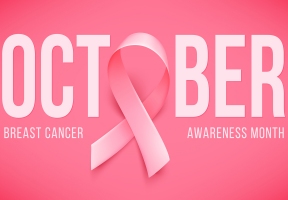By: Ashmar Mandou
 October is Breast Cancer Awareness Month and although there is ample information out there, questions still arise over whether to go for routine mammograms or go for genetic testing. With the help of Mayo Clinic Health System, we’ve answered a few top breast cancer related questions.
October is Breast Cancer Awareness Month and although there is ample information out there, questions still arise over whether to go for routine mammograms or go for genetic testing. With the help of Mayo Clinic Health System, we’ve answered a few top breast cancer related questions.
Why do I need to worry about breast cancer and having routine mammograms?
This is the most common question shared during breast clinic consultations. Many people mention that they don’t have any family history of breast cancer. However, approximately just 20 percent of breast cancer is related to family history and genetic links. People are considered at the highest risk after a breast cancer diagnosis in a first-degree relative, such as a mom or sister.
What steps can I take to be informed of my risk of breast cancer?
This answer has two parts. The first part is to learn about your family’s medical history. The second part is to follow your healthcare team’s recommended preventive screening plan, including a mammogram if necessary.
Should I continue doing self-checks of my breasts and have an annual clinical breast exam?
The American College of Obstetricians and Gynecologists and the U.S. Preventive Services Taskforce update breast screening recommendations annually, but more research studies need to be done. Your health history and conversations with your healthcare team will help inform the best approach for you. Although not all healthcare professionals perform a yearly clinical breast exam as part of an annual physical, you may choose to perform monthly or quarterly self-checks to increase your breast awareness. Both a yearly breast exam by a medical professional and regular self-checks are recommended if you have a higher risk of breast cancer.
Should I have genetic testing to determine if I have a family-related risk of breast cancer?
The short answer is, for some people, yes. However, genetic testing is recommended only after a discussion with your healthcare team or breast specialist about your cancer risks. You may be asked to meet with a genetics counselor to ensure that there is a strong indication for testing.









